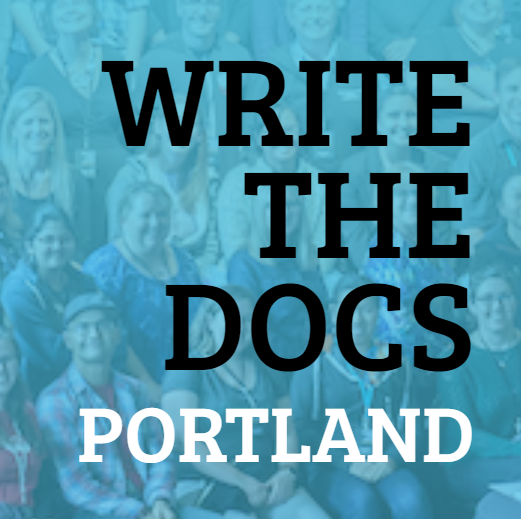Write the Docs Portland 2020 - Wrapup
Table of Contents
Notes
For transparency, this post is adapted the from September of 2020 on the Wordpress site. You’ll find small modifications to the exposition and the links were in the context of that time.
Write the Docs Portland 2020

At Write the Docs Portland 2020, UX and tech writing pros offered advice to new writers. Technical and UX writers chose a field that focuses on helping people, so is it any surprise that they themselves tend to be pretty helpful people? That was definitely the case at the Write the Docs Portland 2020 conference, where on August 11th, 2020, a group of established pros offered advice to newcomers in a “virtual table” session.
Like anyone looking for help, people just entering the field or looking to become a technical or UX writer have a few “frequently asked questions.” How do I build a portfolio without professional experience? What can help me stand out as a candidate? And once I land that dream job, what can I do to make sure I become a valuable addition to the team?
Portfolio Building
It’s a classic Catch-22… The job says experience required, but how am I supposed to get experience without a job? Garrett Griffith, technical writer at cPanel in Houston, Texas, offered an idea. Google’s Season of Docs is a program that matches technical writers with open source code projects around the world. Not only can you get real-world experience creating software documentation, but there is also a stipend–up to $6,000 for U.S. based writers!
Another approach might be to seek out a mentor. Opinion around the table was unanimous—the technical and UX writing community is a friendly and approachable group of people who are always willing to help a fellow writer. Attend a conference or just reach out through Linkedin; you’re likely to find someone who is ready and willing to talk about their craft and help you launch (or further) your career.
Standing out
Companies seeking technical and UX writers probably see more than a hundred resumes for every open position. Throughout your resume, include things that demonstrate your value to a company as well as the skills and experience you bring to the table. If you think about the process from a hiring perspective it can be easier to see and fill in the gaps in your resume.
If you make it past the initial cull, you’ll probably be interviewed by phone. Be ready! Phone screening is only the second phase and your performance will determine whether or not you get through to the in-person interviews. Griffith recommended The Interview Guys to prepare.
Establishing yourself
Several writers in our session were relatively new to their jobs, so there was a lot of great advice about how to make sure you are bringing value to your new team right away.
First off, don’t limit yourself to your job description and be willing (and eager) to help where help is needed. Your fresh eyes may reveal areas that would benefit from documentation help, said Susan Hartzman, content writer at QuestBridge.
Tom Edmonds, technical writer at Ascend Software, agreed that throwing yourself into things is a great way to go. “I’ve found that doing it and not being afraid to do it wrong and then get better… The nice thing about documentarians is that we write everything down. If somebody has found success doing something it exists somewhere on the internet!”
Tom also highlighted the importance of concrete demonstrations of how your work benefits the company. “Build a business case. Talk about ticket deflection and people will listen.” People often don’t realize, Tom said, how helpful good documentation can be until they see it in action.
Garrett and Susan also mentioned how helpful it can be to meet with the customers using your company’s product. They are the people you are trying to help, so what are they struggling with? What is working well?
We enjoyed talking with Garrett, Susan, Tom, and everyone else who was able to attend our session.